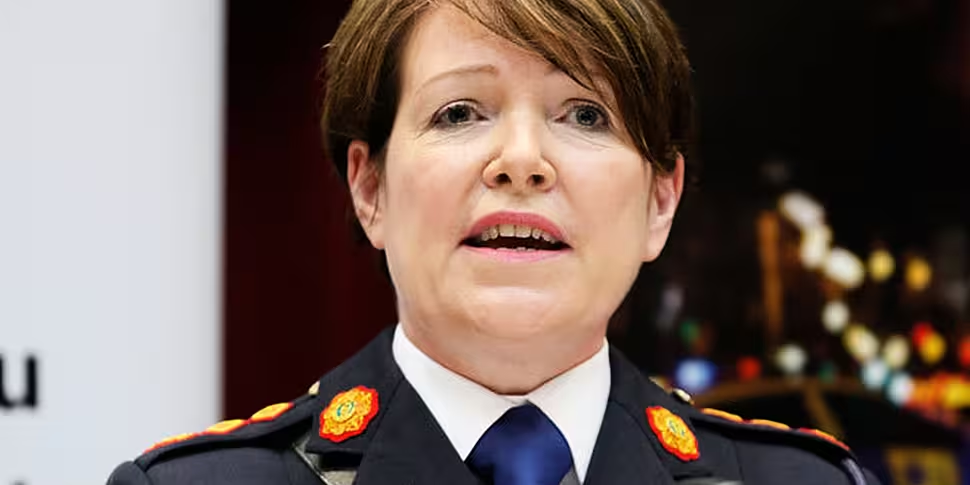A Garda assessment has found there is no evidence of the IRA Army Council, or any "military departments" of the IRA meeting or functioning within the Republic of Ireland.
But Gardaí say there are no major differences between their own assessment and that of the PSNI, which says the body continues to remain in place in a reduced form.
Minister for Justice Frances Fitzgerald said that Garda Commissioner Noirín O'Sullivan has informed her she "accepts fully the assessment made by the PSNI and British Security Service in relation to PIRA (Provisional IRA) in their jurisdiction.
"The assessments relate to security matters, not any political conclusions which can be drawn from them," Ms Fitzgerald added.
The report, released this evening, outlines the various roads taken by former members of the PIRA. There is "clear intelligence" of former members "adopting exclusively political or community roles", while others are no longer involved in the republican movement "in any capacity", a "significant number" have joined dissident groups, and others "have engaged in criminality for personal gain."
The report also found that "a type of 'residual leadership', committed to peaceful means, continues to exist and has become involved from time to time in dealing with 'legacy' issues."
The report states that "a significant number" of former PIRA members "remain criminally active, particularly in organised crime ... they make full use of their "legacy" reputations and in some cases their former terrorist tactics."
Sinn Féin spokesperson on Justice said the report is consistent with previous reports and that the commitment from the IRA leadership to the peace process 'has been successful'.
“Dissident groups and criminal gangs appear to act with impunity. Sinn Féin activists and representatives have been threatened and attacked for standing up to these groups," Mr MacLochlainn said.
“What is needed is not political rhetoric, but resolute action and resources to end their activities," he added.
PSNI finds PIRA still exists
Earlier today, a report commissioned by the British government said the IRA still exists - and that IRA members believe the Army Council is responsible for both the IRA and Sinn Féín.
The Democratic Unionist Party (DUP) says ministers who had resigned from the Stormont Executive will return to office following the publishing of that British report.
the British government-ordered review into paramilitary structures in Northern Ireland found parts of the Provisional IRA still exist in a "much reduced form".
Northern Ireland Secretary Theresa Villiers has told the House of Commons that the review found that, while the main republican and loyalist terror groups remain, none are planning attacks.
She added that, although all of the main groups had committed murders since the 1998 Good Friday Agreement, their leaders are now committed to peaceful means of achieving their objectives.
The report described the Provisional IRA as being "committed to achieving a united Ireland by political means", adding: "The PIRA of the Troubles era is well beyond recall".
The Provisional IRA was the largest and most active terror group in Northern Ireland in the Troubles and the report blames it for 1,771 murders between 1969 and 1998.
Quoting the report, Ms Villiers said: "It is our firm assessment that the leaderships of the main paramilitary groups are committed to peaceful means to achieve their political objectives".
Still reading from the report, she added: "We judge that individual members of paramilitary groups with a legacy of violent activity still represent a threat to national security".
Ms Villiers said that most of the paramilitary groups still "organise themselves along militaristic lines", with the report saying that this made them "look more prepared for a campaign of violence than they are".
The report was based on assessments by the Police Service of Northern Ireland and MI5 and examined groups including the Provisional IRA, Red Hand Commando, Irish National Liberation Army, Ulster Volunteer Force and Ulster Defence Association.
"Much of this assessment makes uncomfortable reading"
The Taoiseach and British Prime Minister have spoken over the phone tonight about the report into paramilitary activities.
The call lasted for 15 minutes and both Enda Kenny and David Cameron have welcomed the fact that the Northern Irish Assembly is reconvening tomorrow.
The Taoiseach highlighted his concerns over continued cross border criminality - and both agreed that peace talks need to yield results as soon as possible.
They agreed to stay in touch on the matter.
Ms Villiers told parliament that "much of this assessment makes uncomfortable reading", adding: "These organisations should never have existed in the first place and, 21 years after the first ceasefires and 17 years after the Belfast Agreement, it is clearly unacceptable that they still exist today".
It also reported that some of the other groups - such as the Irish National Liberation Army, Ulster Defence Association and the Ulster Volunteer Force - have become involved in crime such as drug dealing and racketeering, despite the efforts of their leaders to concentrate on positive community activism.
The review was called for after the murder of Kevin McGuigan in August - a suspected revenge attack for the murder of former IRA commander Gerard Davison three months earlier.
The murder of Mr McGuigan, an ex-IRA man, saw all but one of the unionist ministers walked out, saying that trust in Sinn Fein had been shattered and leaving Stormont's power-sharing executive in chaos.
Crisis talks between the five main parties and the British and Irish governments have failed to resolve the problem, with these talks effectively awaiting the outcome of the review into paramilitary activity.
In the wake of the review's publication, the DUP announced its ministers who had walked out would return to office - but the party's Westminster leader Nigel Dodds said: "The report demonstrates the scale of the work that lies ahead in the talks process".









